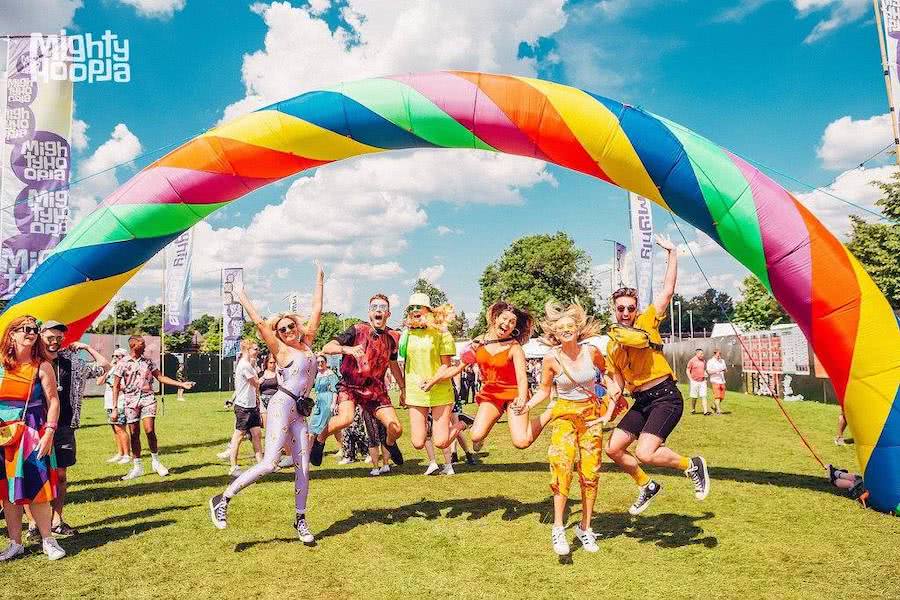Are niches the future of music festivals? A panel at FastForward Amsterdam thinks so

The global music industry congregated in Amsterdam late last week to discuss some of the most pertinent issues affecting its sector, and to share the kind of knowledge you don’t often get at less intimate gatherings.
On Day 2 of FastForward Amsterdam, 150 industry figures from countries such as Germany, the US, Norway, the UK, Australia and even South Africa gathered at the Muziekgebouw aan ‘t IJ to discuss issues such as the changing festival sector, the growing Latin American music sector, data collection, and so much more.
In a panel which delved into niche music festivals, UK-based, Aussie expat Renae Brown said as Festivals Coordinator for Vision Nine (Boardmasters, NASS), a strong identity is key to longevity.
“Unless you have a solid direction of who you are […] it’s really difficult to communicate that in a show,” she said.
The panel of Brown, Jamie Tagg, Managing Director at East Creative and Kate Osler, Director or AEI Group all agreed experience is another key to success.
“The demand for ‘experience’ is so much more, year-over-year we’re seeing it,” she added. “[…] I think it’s because you can see so much, you can go on Instagram [and view competitors’ experiences].”
Brown runs skate BMX and music festival NASS Festival – which grew from 10,000 to 25,000 capacity this year – along with Cornwall surf and music festival Boardmasters.
“People buy in to your show because of the personality of the show now,” she said.
NASS Festival features has an installation where BMX bikers skate through a ring of fire – “That just social media catnip,” joked Brown.
AEI Group’s Kate Osler, who runs TheSoundYouNeed, El Dorado, and more, said that due to the festivals’ boutique nature, her team has to be clever and fight harder to sell tickets due to increasing competition.
However, because of the festival’s experiential pull, they see a lot of return acts years on, despite those acts growing to a medium-tier level.
“We’ve got a few acts that just come and party now because they like being part of that small, kind of feral, vibe,” she laughed.
Jamie Tagg runs the 20,000-capacity festival Mighty Hoopla, which was adopted by a community that wanted to celebrate so much more than music.
“We’ve got a huge community that works for us, from set designers to dress makers… Having the community as part of the event is the best thing you can do,” he said.

Mighty Hoopla in London
Because Mighty Hoopla was created by and for the LGBTQI community, Tagg said it’s imperative that even the event security are on board with the festival community.
“If they are aggressive, if they are using the wrong pro-nouns, it comes back on me,” he stressed. “[…] Security are the first point of contact so they’re really important.”
In the wake of the disastrous Fyre Festival, Moderator Stuart Dredge of Music Ally asked the panel’s opinions on using influencers.
Osler said she works with influencers because they have a place in the industry when it’s a natural fit.
“We’re quite selective in who we work with, but we certainly don’t pay people to come to the festival,” she said.
She added that because social media is so much a part of the festival experience, her team creates spaces onsite which are ‘Instagrammable’. The need for aesthetically pleasing backdrops can even change an entire festival’s site plan.
“We d create areas that you see consistently over the ‘Gram, but that’s just the audience that we’re working with,” said Osler. “[…] Our biggest marketing tools are social tools and you do have to make sure you appeal to that so you continue to sell tickets the next year.”
FastForward returns to Sydney’s University of Technology Sydney (UTS) on 11-12 April, before its staging in London in September.
This article originally appeared on The Industry Observer, which is now part of The Music Network.






























